In July I rode the overnight bus to Damak, 16 hours along a corrugated highway to the hot and dusty Terrai region of Nepal at the very feet of the Himalayas. Damak is home to around 35,000 Bhutanese refugees who were forced from their homes by the Kingdom of Bhutan in 1991. Many suffered torture, rape, arbitrary arrest and the seizure of their citizenship cards.
Since 2007, 65,000 have been resettled by the IOM and the UNHCR in Canada, the USA and Australia.
After more than 20 years as refugees and stateless persons, those that remain in Nepal are either awaiting resettlement, have been refused resettlement or wish to repatriate to their homeland in Bhutan. For many the suffering continues; mental health, higher divorce and rates of suicide count among some of their problems with no solutions in sight.
Families members have been separated by the resettlement process, widows and divorcees are refused resettlement because they cannot provide the UNHCR with written consent of absent husbands and fathers who can no longer be located.
This is a story of my travels to Damak, the people I met in Damak, and the plight of the refugees from Bhutan.
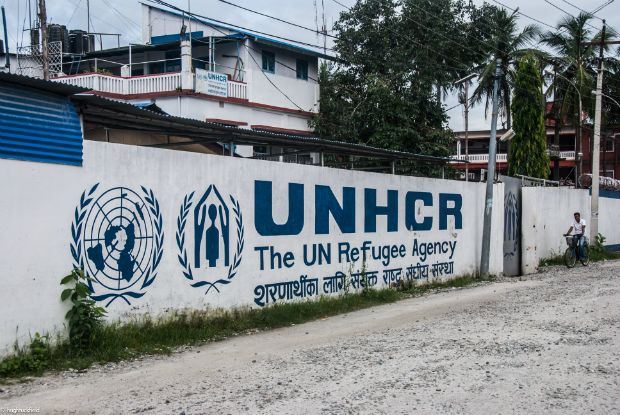
The UNHCR is the international organisation responsible for managing the resettlement of the Bhutanese refugees in Nepal, assisted by the IOM (International Organisation for Migration) and the countries accepting the refugees.
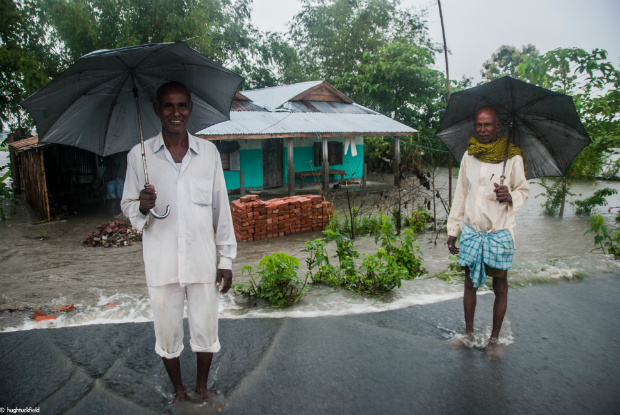
I arrived in Damak in the monsoon season. The house being flooded belongs to the man on the right. The gentleman on the left is not too concerned, exhibiting the resilience of a nation ranked 165 out 184 in terms of poverty.
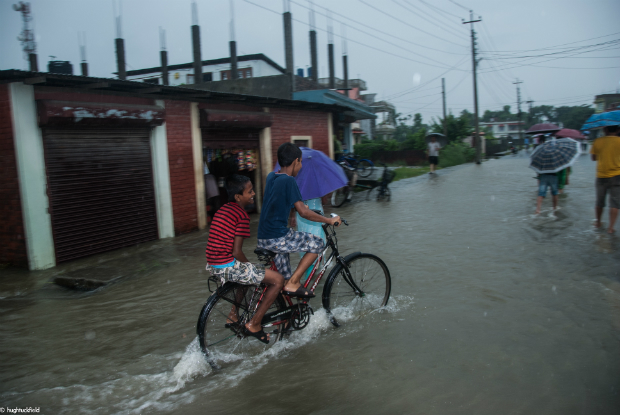
Children cycle through the monsoonal flood in Bhutan.
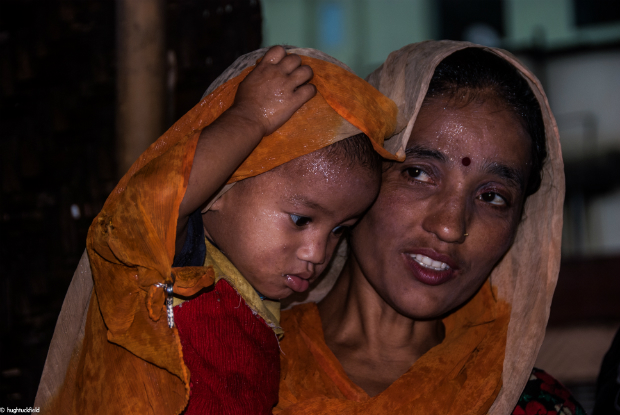
A mother and child shelter from the monsoonal rains that flooded Damak the morning I arrived.
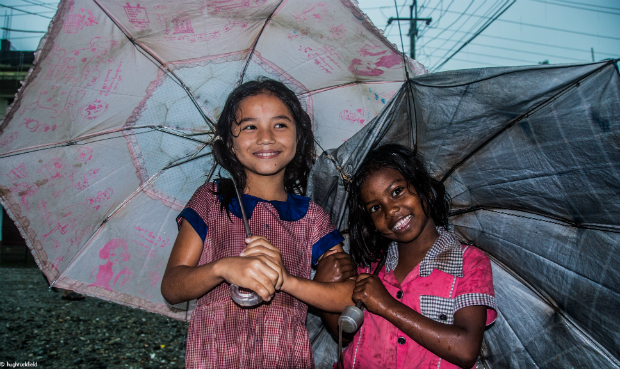
Best friends.
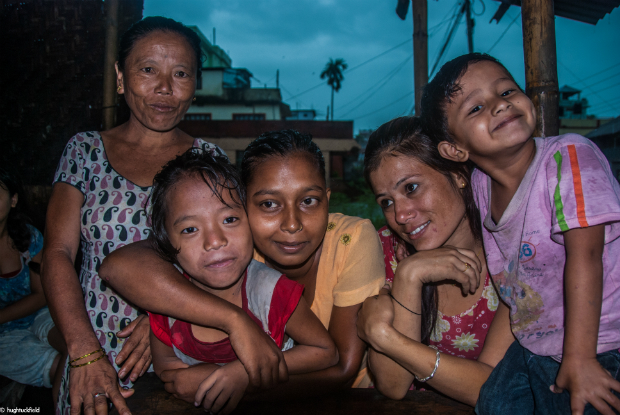
Nepal has over 130 ethnic groups — and in Damak, there appears to be no barriers between them.
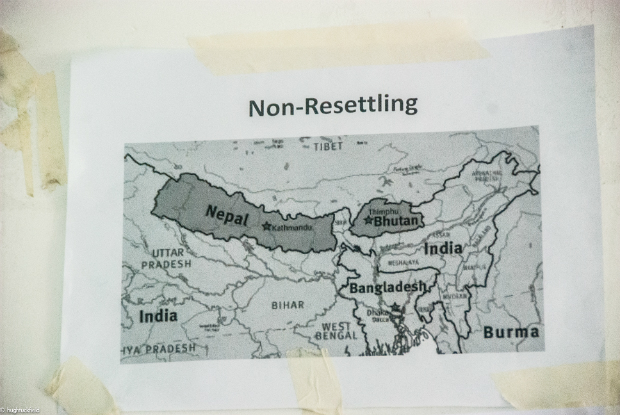
A core group of Bhutanese refugees long for the day they can return to Bhutan, even after 20 years languishing in a refugee camp.
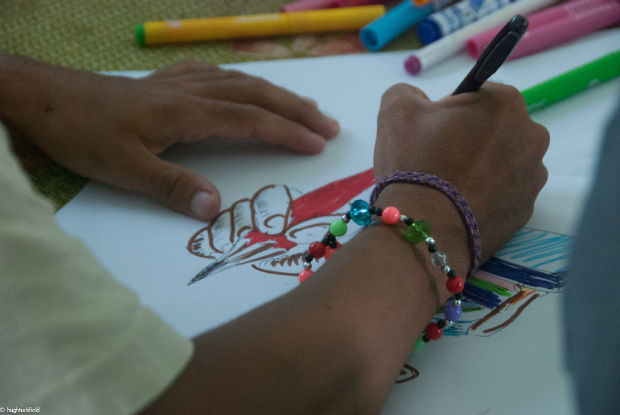
A young Bhutanese artist expresses his frustrations and anguish through his art.
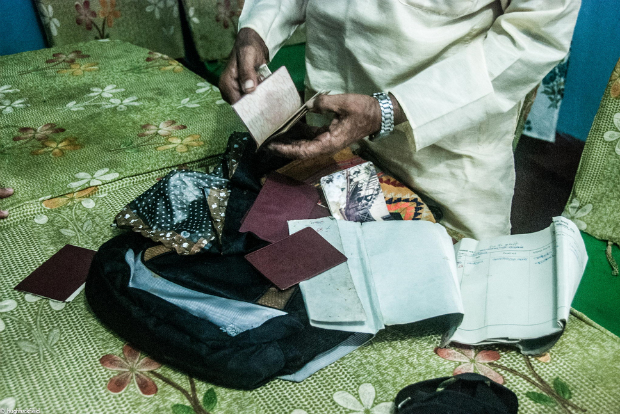
A Bhutanese man in his eighties still holds on to his land title deeds, old photographs and identity papers in the hope that one day he may return to his home in Bhutan.
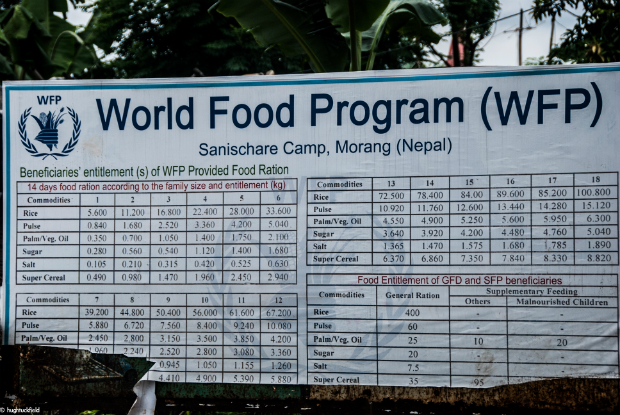
World Food Organization 14 Day Food Allowance, Sanaschere Refugee Camp, Damak.
Donate To New Matilda
New Matilda is a small, independent media outlet. We survive through reader contributions, and never losing a lawsuit. If you got something from this article, giving something back helps us to continue speaking truth to power. Every little bit counts.



